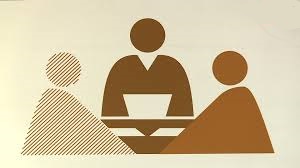Recessions can be severe and have long-term consequences. As a result, it is difficult for both individuals and businesses to recover from the downturn.
Understanding the negative and positive consequences of recessions and depressions is one of the best ways to survive recessions.

Negative consequences
Unemployment rises
Both depressions and recessions are characterized by rising unemployment. When companies go out of business, they lay off workers in response to dwindling profits. Unemployment during depressions is significantly higher than during recessions. During a recession, unemployment typically rises to between 6% and 11%. In 1933, the first era of the Great Depression was coming to an end, and unemployment reached 25 percent.
Capital destruction
Not only did employees lose their jobs during the recession, but vast amounts of tangible capital assets (processing plants, tools, buildings, and equipment) were left idle as investments and business operations failed and went out of business. Much of this investment capital can be salvaged later and converted to new useful uses under new owners, but some is lost permanently due to obsolescence or physical deterioration.
Falling Standard of Living
During recessions, unemployment and capital unemployment lead to lower economic output and lower real per capita income. Consumption decreases when the quantity of goods and services actually produced decreases. As a result, many are unable to maintain their quality of life. As family stress increases, the birth rate falls and the divorce rate rises.
Cause Fear
Anxiety is rampant during recessions and depressions. Many lost their businesses or jobs, but those who kept them were often vulnerable and fearful of the future. Fear drives consumers to cut back on purchases and businesses to cut back on investment, further slowing the economy.
The Benefits of a Recession
Despite the pain they cause, recessions can have some positive consequences:
Resource Reallocation
When a recession leads to business failures and asset liquidations (whose existence depends on interest rate signals or distorts prices), finding these misguided investments and reallocating resources allocated to them to support other owners for more productive uses is long-term The net economic gain is part of the misery that may occur for workers and capital temporarily out of work.
Investment Discipline
Marginal investors and companies that rely heavily on debt and leverage to engage in risky, speculative investment strategies or start-up ventures are often punished during recessions. Correcting and exiting risky investments in order to use their resources more wisely is a feature, not a flaw, of a recession. Over time, it instills discipline in market participants.

Buying Opportunity
The reallocation of resources and assets is the opposite of the massive bankruptcies that can occur during a recession. There are a lot of great deals to do when the economy is bad. Stocks are cheap for newbies. Housing affordability is increasing, enabling new home buyers to take advantage of low costs. Land, labor and money can become cheaper for entrepreneurs who want to start a new company. As recessions give way to recovery, stocks typically make highs higher than their pre-depression or pre-recession highs. The contraction therefore presents a good opportunity for investors who are patient to wait for a recovery.





